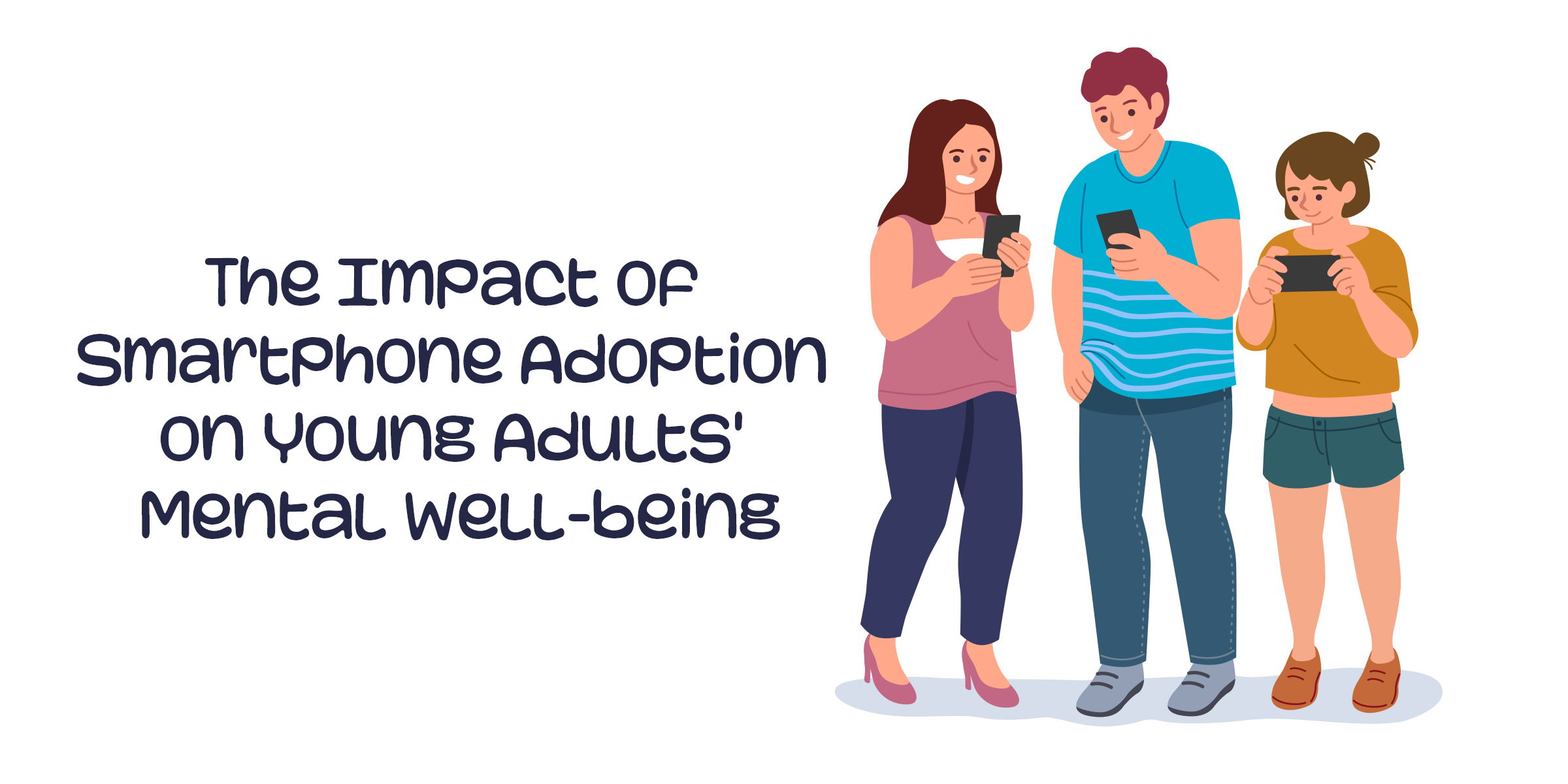Unveiling the Effects of Smartphones on Mental Health
In recent years, the rise of smartphones has revolutionized the way we connect, communicate, and navigate the world around us. These pocket-sized devices have become an integral part of our daily lives, offering instant access to information, social media, and entertainment. While smartphones undoubtedly offer numerous benefits, their ubiquitous presence has sparked concerns about technology impact on mental health. As our dependency on these devices grows, it is essential to examine the potential effects they may have on our well-being. By understanding the effects of smartphones on mental health, we can navigate the digital landscape more consciously and proactively promote a healthy balance between technology and mental wellness.

The Global Mind Project, previously known as the Mental Health Million Project, has consistently presented compelling data revealing a concerning trend: the mental well-being of younger generations across the digitally connected globe is consistently lower (Research Paper - Sapien Labs, 2021, 2022a, 2023a).
Here are some of the potential negative effects of smartphones on mental health.
Depression
-
Constantly comparing one"s life to the curated portrayals on social media can result in heightened feelings of worthlessness and inadequacy.
-
This emotional strain, when left unchecked, has the potential to evolve into depression.
-
Extensive research reveals that prolonged exposure to social media content amplifies depression, particularly among individuals prone to negative thought patterns.
-
Furthermore, the symptoms of withdrawal stemming from smartphone addiction can also be linked to depressive tendencies.
-
Individuals who are excessively reliant on their phones and endure prolonged periods without them often experience effects of smartphones on mental health with emotions such as loneliness, frustration, irritability, and fatigue.
-
Such effects of technology on mental health can result in emotions that can exacerbate feelings of depression, establishing a detrimental cycle of negative emotions.
Disruptions in sleep
-
Blue light emitted by smartphone screens has been shown to interfere with the generation of melatonin, a hormone that governs sleep.
-
Frequent smartphone usage before bedtime can disturb sleep patterns and lead to insomnia or poor sleep quality, all of which can contribute to mood problems, cognitive issues, and a general sense of well-being.
Isolation from social interactions
-
Excessive smartphone usage can contribute to a decline in face-to-face social interactions with loved ones, friends, and acquaintances.
-
The constant need to check phones for updates and notifications diminishes the amount of time individuals spend actively engaging with their immediate surroundings.
-
As a result, one of the major effects of smartphones on mental health is that the opportunities to forge deep connections and engage in meaningful conversations in person become scarce, fostering emotions of seclusion and solitude.
A research paper from Sapien-Labs highlights the following:
-
The earlier children receive smartphones in their childhood, the greater portion of their formative years is dedicated to the virtual realm.
-
With an average of 5 to 8 hours spent online per day during childhood, it is estimated that this could replace approximately 1,000 to 2,000 hours annually that would otherwise be allocated to valuable face-to-face social interactions.
-
Consequently, this time displacement hinders the opportunity for children to learn and develop crucial skills, as well as cultivate meaningful relationships that contribute to their overall growth and well-being.
Anxiety and stress
-
Constant connectivity through smartphones can create a sense of pressure to respond immediately to messages, notifications, and social media updates.
-
The psychological effect of cell phone addiction, i.e. fear of missing out (FOMO) can lead to increased stress, anxiety, and a constant feeling of being "on-call."
-
Moreover, comparing oneself to others" carefully curated online personas can contribute to feelings of inadequacy, jealousy, and low self-esteem.
Reduced performance at work
-
When it comes to the effects of smartphones on mental health, excessive smartphone usage can hamper the performance in both work and academic settings.
-
The continuous need to check notifications or indulge in social media acts as a distraction, diverting valuable time away from essential job-related responsibilities or academic tasks.
-
Consequently, this can result in subpar work performance, diminished grades, and heightened stress levels due to the mounting pressure to meet expectations and achieve desired outcomes.
The impact of childhood traumas and adversities on adult mental health has been increasingly observed in each successive younger generation (Anda et al., 2006; Sapien Labs, 2023b). A possible explanation for the patterns of improving mental well-being and reduced issues with smartphone use at older ages of acquisition is the influence of childhood traumas and adversities. It is plausible that these experiences shape the manner in which individuals use smartphones, subsequently affecting their mental health outcomes. Conversely, it is also possible that a childhood devoid of traumas and adversities acts as a protective factor against the negative impacts of smartphones.
The effects of smartphones on mental health are quite profound, with both positive and negative effects. While smartphones offer numerous benefits, such as easy access to information and communication, there are also negative psychological effects of cell phone addiction. Excessive smartphone usage, coupled with constant social media comparison, can fuel feelings of worthlessness and inadequacy, potentially resulting in depression. Another technology impact on mental health is smartphone addiction which can result in withdrawal symptoms, exacerbating feelings of loneliness and frustration, which can further contribute to depressive tendencies. Moreover, excessive smartphone use can disrupt real-world social interactions, leading to feelings of isolation and a decline in meaningful relationships. Recognizing the potential hazardous effects of smartphones on mental health is crucial in order to establish healthy digital habits and maintain a balance between the virtual and real world. It is important to prioritize mental well-being and seek support when needed to navigate the complex relationship between smartphones and mental health.
